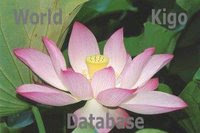:::::::::::::::::::::::::::::::::::::::::::::::::::::::::::::::::::::::::::::::::::::::::::::::::::::
Morning (asa)
***** Location: Japan
***** Season: Various, see below
***** Category: Season and see below
*****************************
Explanation
From morning to mid-day to evening to night . . .
Each time of the day has been associated with a season in court poetry.
For example Sei Shonagon 清少納言 wrote
haru wa akebono - in spring the daybreak, dawn
natsu wa yoru - in summer the the night
aki no yuugure - in autumn the dusk, evening
fuyu wa tsutomete - in winter the early morning

:::::::::::::::::::::::::::::::::::::::::::::::::::::::::::::::::::::::::::::::::::::::::::::::::::::
Every day we experience a morning, but some are so special they are kigo for haiku !
Let us look at them here.
The word MORNING / ASA, just like that, is a topic for haiku.
. kesa 今朝 this morning
topic for haiku
The daybreak, dawn in all its stages of Japanese vocabulary:
akegata 明け方, ake 明け
yoake 夜明け night breaks into day
akatsuki 暁
shinonome 東雲
akebono 曙
reimei 黎明
kawataredoki 彼誰時
hinode 日の出 sun comes out
akemitsu doki 明け三つ時
the time from 5 to 7 in the morning in Edo
:::::::::::::::::::::::::::::::::::::::::::::::::::::::::::::::::::::::::::::::::::::::::::::::::::::
SPRING
haru no asa 春の朝 (はるのあさ) morning in spring
..... shunchoo 春朝(しゅんちょう)spring morning
..... haru ashita 春あした(はるあした)
. haru no asahi 春の朝日(はるのあさひ)
morning sun in spring
. spring morning light, spring dawn, shungyoo
春暁 (しゅんぎょう)
..... haru no akatsuki 春の暁(はるのあかつき)
spring dawn, haru no akebono 春の曙(はるのあけぼの)
..... shunsho 春曙(しゅんしょ)
daybreak in spring, haru no yoake
春の夜明(はるのよあけ)
.... haru no asake 春の朝明(はるのあさけ)
. . . . SPRING
the complete SAIJIKI
:::::::::::::::::::::::::::::::::::::::::::::::::::::::::::::::::::::::::::::::::::::::::::::::::::::
SUMMER
summer of this morning, kesa no natsu
今朝の夏(けさのなつ)
natsu no asa 夏の朝 (なつのあさ) summer morning
natsu no akatsuki 夏の暁 (なつのあかつき) dawn in summer
..... natsu ake 夏暁(なつあけ)
natsu no yoake (yo-ake)夏の夜明(なつのよあけ)daybreak in summer
natsu mimei 夏未明(なつみめい) early morning in summer
. natsu asahi 夏朝日(なつあさひ)
morning sun in summer
asasuzu 朝涼 coolness in the morning, morning cool
. asanagi 朝凪 (あさなぎ) no wind in the morning
..... asa nagu 朝凪ぐ(あさなぐ) calm in the morning
asaniji 朝虹 (あさにじ) morning rainbow
. . . . SUMMER
the complete SAIJIKI
:::::::::::::::::::::::::::::::::::::::::::::::::::::::::::::::::::::::::::::::::::::::::::::::::::::
AUTUMN
autumn of this morning, kesa no aki
今日の秋(きょうのあき)
aki no asa 秋の朝 (あきのあさ) autumn morning
..... shunchoo 秋朝(しゅうちょう)
shungyoo 秋暁(しゅうぎょう) autumn daybreak
. asazukuyo 朝月夜(あさづくよ)moon at dawn
ariakezuki 有明月(ありあけづき)dawn moon in autumn
.................................................................................
kigo for late autumn
asa samu 朝寒 (あささむ) cold morning
asa samushi 朝寒し(あささむし), asa samumi 朝寒み(あささむみ)
. . . . AUTUMN
the complete SAIJIKI
:::::::::::::::::::::::::::::::::::::::::::::::::::::::::::::::::::::::::::::::::::::::::::::::::::::
WINTER
winter of this morning, kesa no fuyu
今朝の冬(けさのふゆ)
early winter
spring of tomorrow, asu no haru 明日の春(あすのはる)
late winter
.................................................................................
kigo for all winter
fuyu no asa 冬の朝 (ふゆのあさ) morning in winter
fuyu akebono 冬曙(ふゆあけぼの)sunrise in winter
kangyo 寒暁(かんぎょう)cold sunrise
fuyu akatsuki 冬暁(ふゆあかつき)daybreak in winter
:::::::::::::::::::::::::::::::::::::::::::::::::::::::::::::::::::::::::::::::::::::::::::::::::::::
NEW YEAR
kesa no haru 今朝の春(けさのはる)spring of this morning
ganchoo 元朝 がんちょう New Year Morning
:::::::::::::::::::::::::::::::::::::::::::::::::::::::::::::::::::::::::::::::::::::::::::::::::::::
TOPIC
akemutsu, 明け六つ the sixth double-hour of the morning
asamutsu
In the Edo Period, the dawn (Akemutsu) and the dusk (Kuremutsu) were set as reference points that divided the day into day and night. Day and night were then each divided into six equal intervals. The length of each interval differed for days and nights and varied with the seasons.
source : www.seiko.co.jp/en

source : itoyo/basho
memorial stone at the bridge Akemutsubashi in Fukui
福井市浅水町「朝六つ橋」
あさむつや月見の旅の明け離れ
asamutsu ya tsukimi no tabi no ake-banare
six in the morning -
my trip for moon-viewing
ends at dawn
Written on the 15th day of the 8th lunar month (full moon day)
in the year 1689 元禄2年
It is said Basho wrote 15 haiku wandering around in this night, which were recorded by Miyazaki Keikoo 宮崎荊口 (? - 1725), a haiku poet in Mino (Gifu), a samurai from Ogaki 大垣藩士.
This was the last one when it became light.
It is also a kind of pun of ake-mutsu and akarui, to become light in the morning.
Asamutsu 朝六つ橋 is also the name of a bridge he crossed in Fukui.
Around six in the morning
my moon viewing journey
breaks off at break of dawn
Tr. Liza Dalby
Oku no Hosomichi in Tsuruga
. Matsuo Basho 松尾芭蕉 - Archives of the WKD .
quote
bridge of morning
a journey of moon-viewing
at dawn
With this haiku came a preface:
"When we crossed the bridge of Asamutsu, which is popularly known as 'Asazu', I recall a passage in 'The Pillow Book of Sei Shanagan (a female poet) who wrote:
"The most interesting bridges are the bridge of Asamutsu, (and of Nagara and of Amabiko)". This is the very bridge.
According to Jane Reichhold the third sentence 'ake banare' in a longer translation would be to say 'to leave the darkness of night into the light of morning'. The bridge of Asamutsu is about 8 km soutj of Fukui, in Asuwa.
source : Kristjaan Panneman
When the famous poet Saigyo crossed this bringe, he wrote
越に来て富士とやいはん角原の
文殊がだけの雪のあけぼの
Saigyoo 西行
. Matsuo Basho 松尾芭蕉 - and Saigyo .
. kuremutsu 暮れ六つ; 暮六つ six o'clock at night .
. toki no kane 時の鐘 The Bell to Tell the Time .
*****************************
Worldwide use
*****************************
Things found on the way
. WASHOKU
Asagohan あさめし (朝飯) breakfast
"morning meal" asagohan
*****************************
HAIKU
winter morning
a child carrying a flower
for the teacher
nk singh, India
冬の朝
子供は一輪を
先生に
シング、インドから
Misaki School Haiku Club, 2006
Teaching Haiku by Gabi Greve
*****************************
Related words
***** Morning-Glory (asagao) Japan
. Today (kyoo) , tomorrow (asu)
. Morning (asa)
. Noon, daytime (hiru)
. Evening (yuube, yoi)
. Night (yoru)
. . . . . . Seasons Ending
:::::::::::::::::::::::::::::::::::::::::::::::::::::::::::::::::::::::::::::::::::::::::::::::::::::
[ . BACK to DARUMA MUSEUM TOP . ]
[ . BACK to WORLDKIGO . TOP . ]
:::::::::::::::::::::::::::::::::::::::::::::::::::::::::::::::::::::::::::::::::::::::::::::::::::::







2 comments:
Matsuo Basho 松尾芭蕉
朝茶飲む僧静かなり菊の花
asacha nomu soo shizuka nari kiku no hana
drinking morning tea
the monk becomes peaceful -
chrysanthemum flowers
At temple Soozuiji 祥端寺, Katada 堅田, Otsu town 大津市
Kobayashi Issa
蓮の露一つもあまる朝茶哉
hasu no tsuyu hitotsu mo amaru asacha kana
dew from a lotus leaf
plenty
for morning tea
(Tr. David Lanoue)
Post a Comment